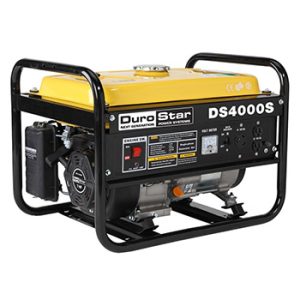It’s Important to Understand Manufacturers’ Portable Generator Ratings
Portable Generator Ratings pertain to the variant specifications of equipment—providing both consumers, and, industry professionals with greater insight into each particular model.
A few years ago in our newsletter, we ran a series of articles titled, “Build Your Own Generator: Fundamental Aspects of Electric

Generator Production,” wherein we outlined the basic components, functionality of generators.
This was in direct response to many subscribers who wrote to us asking one simple question: “How does a generator work?”
Many of them were at a virtual stand-still when reading, comparing, and ultimately understanding portable generator ratings; thus, they felt un-prepared to make educated decisions with respect to purchasing.
Upon recollection, a key point in that series was to not become too ‘caught-up’ into the numeric specifications when searching for new, or, even used electric generators.
It’s far more pertinent to have a thorough comprehension of not only the published ‘numbers,’ but how they directly impact the performance and suitability of the equipment.
Understanding Ratings Can Help You Build Your Own Generator
Once a person obtains a firm grasp-and-understanding of the vast intricacies of portable generator ratings, the natural (intellectual) progression is to begin contemplating about the necessary steps to build your own generator.
Many either have a—very helpful—back-ground in mechanical and/or electric engineering, while others have been successful by meticulously studying textbooks, industry circulations, and even portable generator reviews.
As in most areas of education—and life, in general—the more knowledge + experience one accumulates about a given subject, the more confident one becomes in working with/discussing it.
CAVEAT: Given that there are so many technical dimensions of generators, if one is serious about truly mastering the processes to build your own generator, then we suggest a singular-focus on one of the many categories of portable reserve energy equipment; e.g,…
(a) Generators for home use;
(b) Portable propane generators;
(c) Alternative energy generators;
(d) Gas turbine generators;
(e) Or, You may want to become an expert on the fabrication of a portable natural gas generator.
The moral of this example is that portable generator reviews/ratings are relative.
(One must first determine which variety of equipment is being pursued—natural gas, liquid propane, gasoline—and match that to the prospective task(s) for which the unit will be employed.)
Then, upon more targeted focus on manufacturers’ portable generator ratings will these ‘numbers’ have greater significance in a meaningful sense.
Ratings for a Portable Natural Gas Generator vs. Other Varieties
When conducting research on the available options in the mobile reserve energy world, undoubtedly, one has recognized the apparent power variances between a portable natural gas generator, and its liquid propane powered counter-part.
Many times, the total wattage can be significantly less for a natural gas unit than for a propane powered generator; so, how does one effectively compare the ratings in regards?
Well, initially, we must ensure that we’re comparing ‘apples-to-apples’: Honda RV Generators to Generac RV Generators—and not, Honda RV Generators to Kohler Natural Gas Home Generators; or, a portable Generac Generator to a standby, propane powered unit.
Even while this seems like an elementary understanding, we receive frequent correspondence from visitors who’ve been mislead by dealers touting how much ‘better’ their brand’s electric generator power is—simply because they failed to mention the comparison was levied at a totally un-related category of equipment.
In sum, make certain that, if someone attempts to ‘win-you-over’ based on portable generator ratings alone, You insist that the juxtaposition is relative to the fuel-type and capacity in which You are interested.